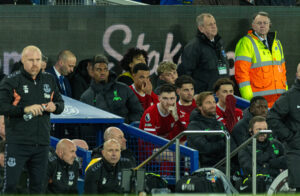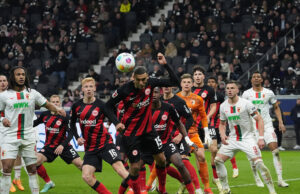Much has been made over the past decade about England failing to develop young players. With the ‘Golden Generation’ of Lampard, Gerrard and Rooney having come and gone, fans and pundits alike hammered on the Premier League.
Clubs like Chelsea and Manchester City are ruining the Premier League, hoarding young English talent and stopping their development. In recent weeks that has been proven far from the truth.
Blues, sky or royal, have been at the heart of England’s youth success. City’s Phil Foden was named Player of the Tournament at the U17 World Cup. Ruben Loftus-Cheek, the crown jewel in Chelsea’s academy, was the best player on the pitch for either side in his England debut. Lest we forget, that was against the current best team on the planet. The Three Lions do not have a development problem, they have an integration problem.
England Has An Integration Problem
Starting at the Bottom
English youth teams are dominating world football at the moment. Chelsea’s U19’s won the first two seasons of the UEFA Youth League, and look poised to do so again. The English U17’s and U20’s are current world champions. By the way, the U17’s did that with their best player leaving after the group stage to go and play for Borussia Dortmund in Jadon Sancho. There definitely is not a development problem.
That being said, there is some disconnect between the level of success seen at youth levels and what is seen at the senior level. Only two of the U17’s have made their professional debut. Only two of the U20’s have featured even semi-regularly for their clubs. With the current level of the Premier League, it looks unlikely that many of them will become regular members of their clubs. So what is going wrong? The players are being produced, but not integrated into the team. Somewhere between 20 and 24, players fall out of the pipeline. Sure, many of them go on to have notable careers. But how many ‘This is the squad England will have for the 2014 World Cup’ articles had even one correct name? Three? Five? England has an integration problem.
The Premier League Does Not Help
The Premier League as a whole is not as suited to youth development as other leagues. In Italy, you name a match day squad of 23 (as opposed to 18), meaning greater room for younger players to experience first team football. Claudio Ranieri has suggested this in the past. The counter to this is that the players are away with their respective PL2 U23 squads, but there is no substitute for first team minutes. Having five youth players in the squad, who can get 15-20 minutes at the end of a 3-0 thrashing is invaluable experience in a no-risk scenario.
However, this is not the only sin the Premier League commits. Homegrown player quotas create demand for talented young English players. The thinking being clubs will register the Loftus-Cheek’s and the Phil Foden’s, and actually use them. Instead, top clubs by the best 20-23-year-olds, who are probably further along their development. Unfortunately, this often leads to stunted growth. Luke Shaw, a promising young talent, probably made the jump to Old Trafford too soon. Fabian Delph, who has found a resurgence at left back, floundered on the City bench for years. Jack Rodwell, another perfect example. Putting a match day requirement of homegrown players would be beneficial, rather than in squad registration.
How Do They Fix It?
This is not a cut and dry problem. These are some of the best young players in the world, surely they can be integrated better. Having match day 23’s, with a minimum of five club trained players would see a greater chance for young players to be nursed in comfortable scenarios. It creates minimal risk for the club and maximal opportunity for the player. Alternatively, offering financial compensation for minutes played by club trained players under 24 would incentivize clubs to play their youth. If Southampton received £2.5 million for every 1500 minutes played by club-trained players, one can imagine James Ward-Prowse would be playing a lot more.
However, for now, it is an issue. England has an integration problem. If The Three Lions want to advance past a quarter-final penalty shootout loss (like the U20’s), something needs to change. Maybe Gareth Southgate is that answer, introducing young blood to England’s friendlies against Germany and Brazil. But if the senior national team has to call up a young player before they are given a chance in their club’s first team, hopefully that change comes sooner rather than later.
Main Photo






